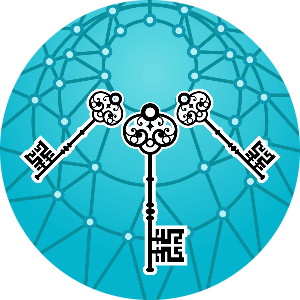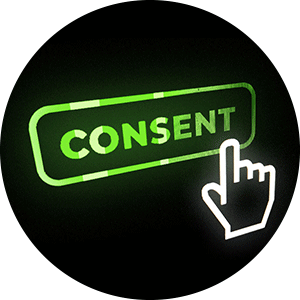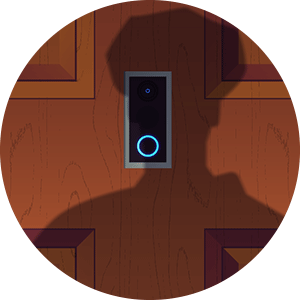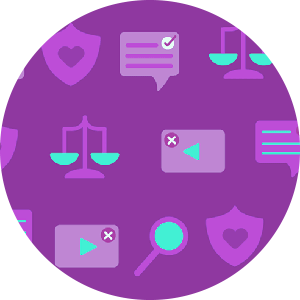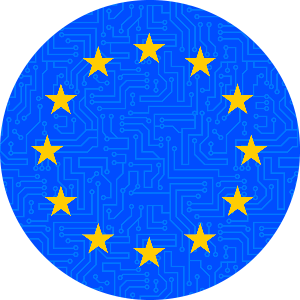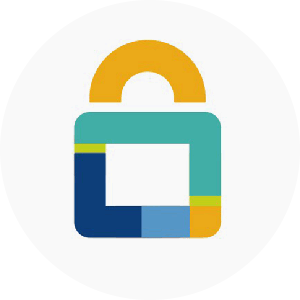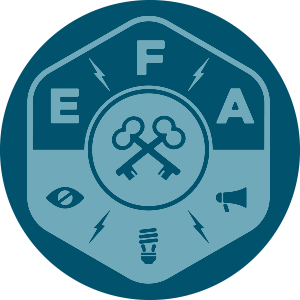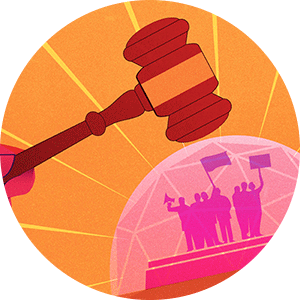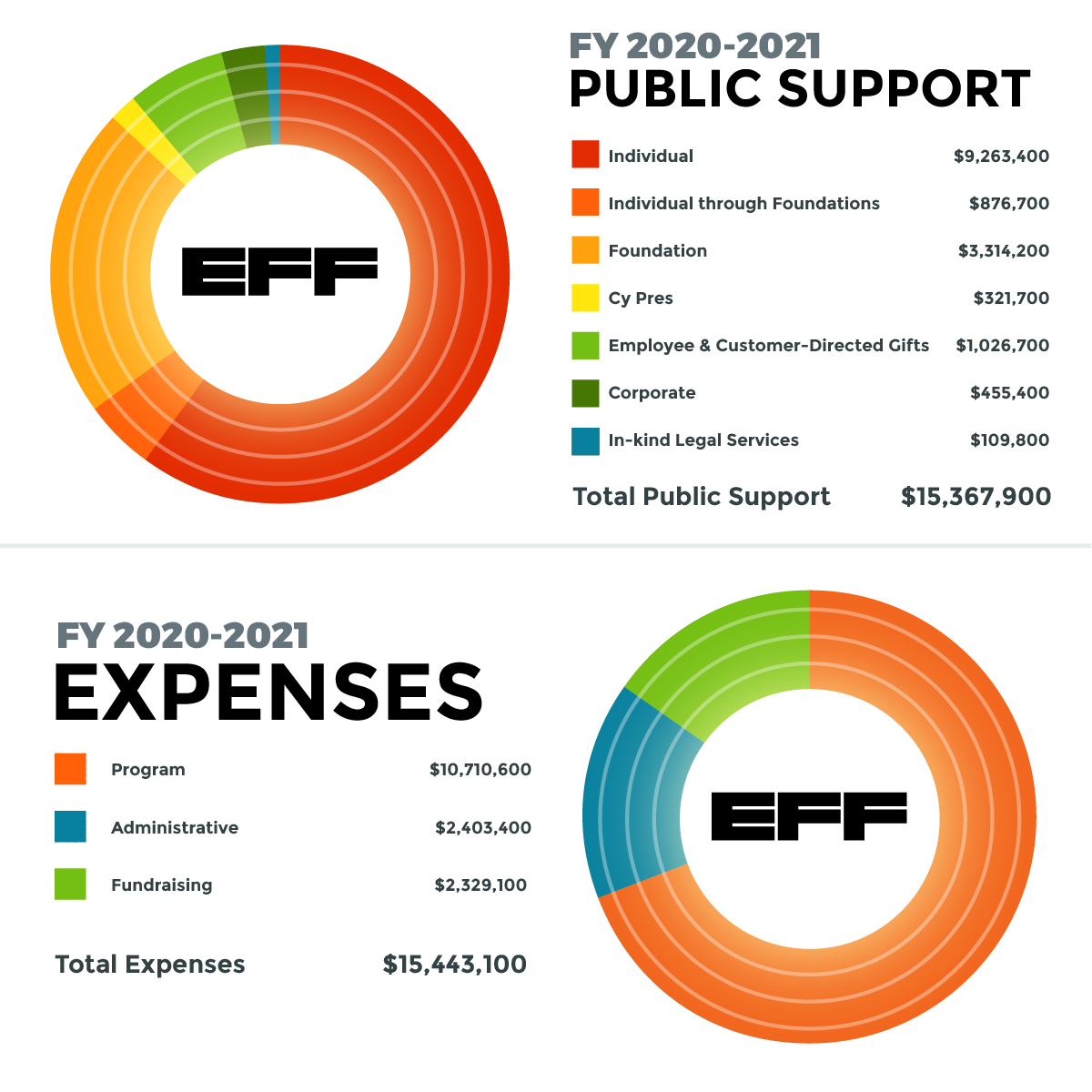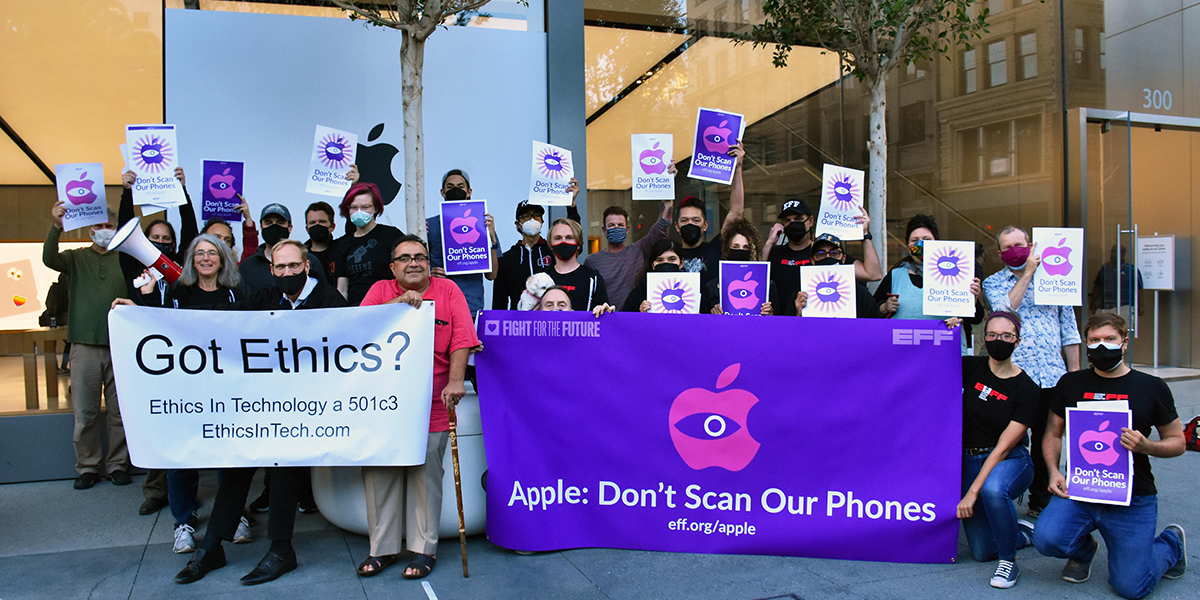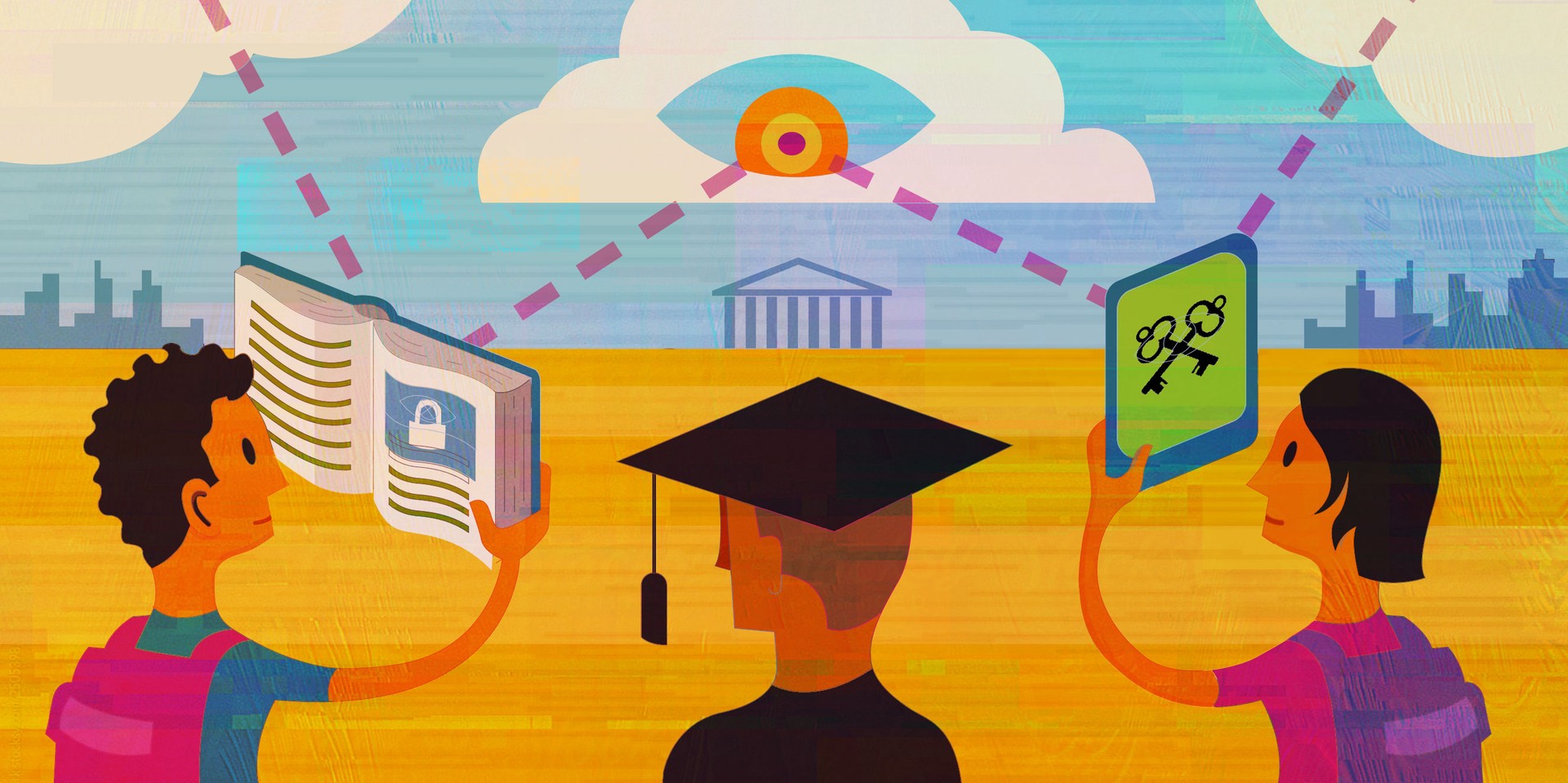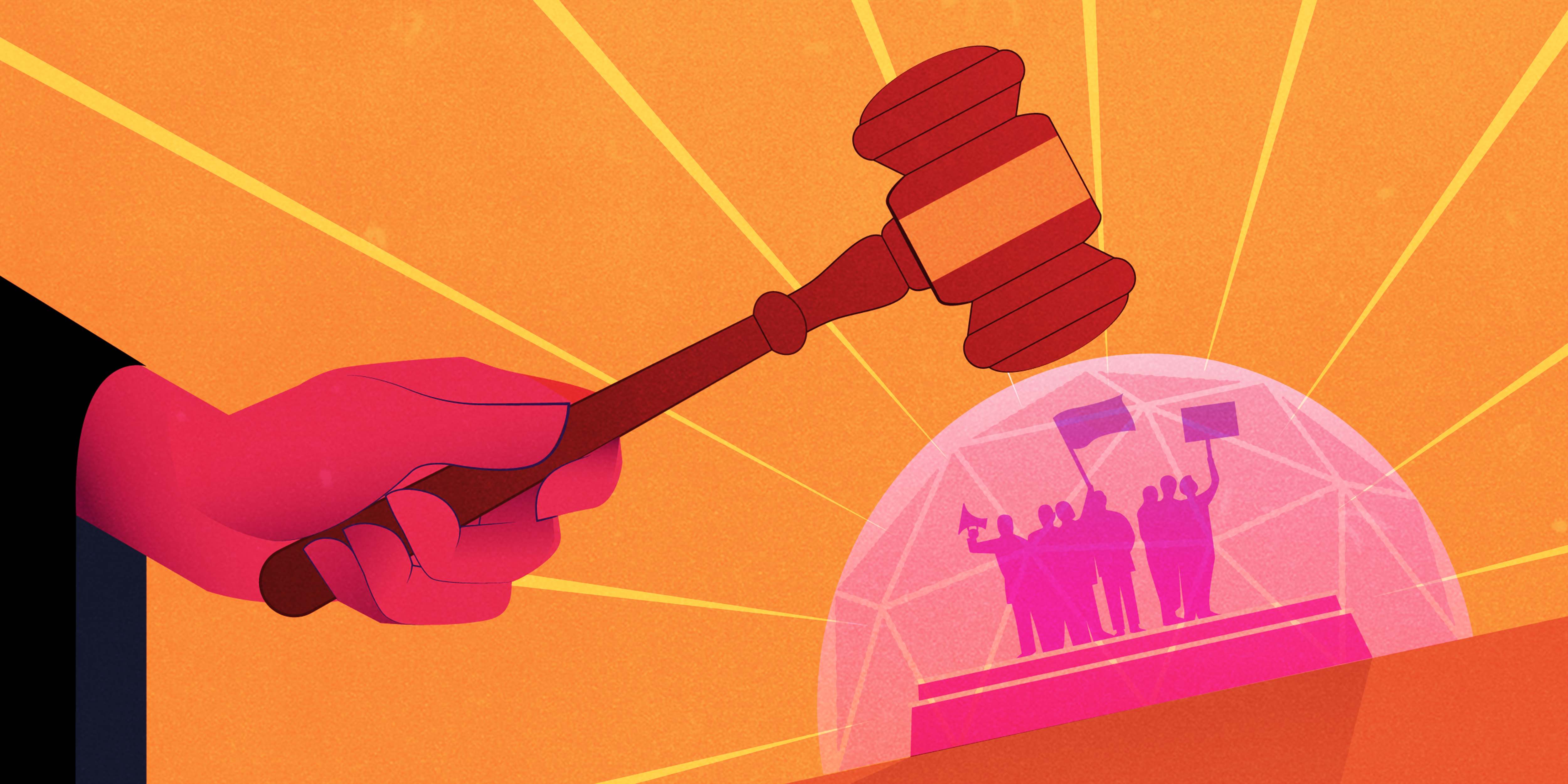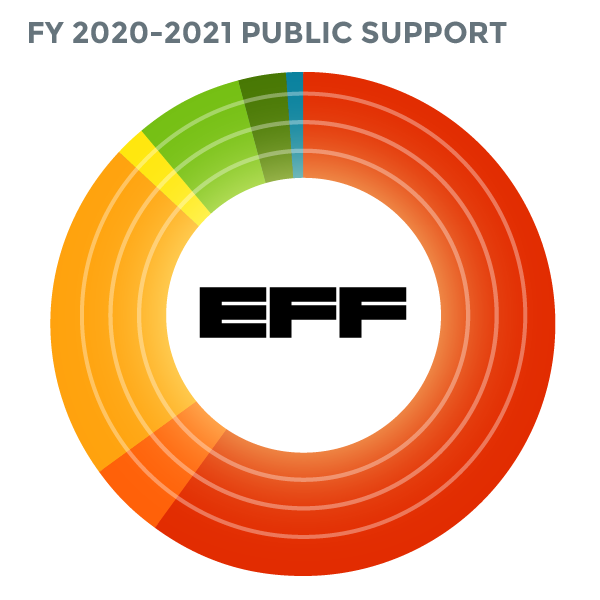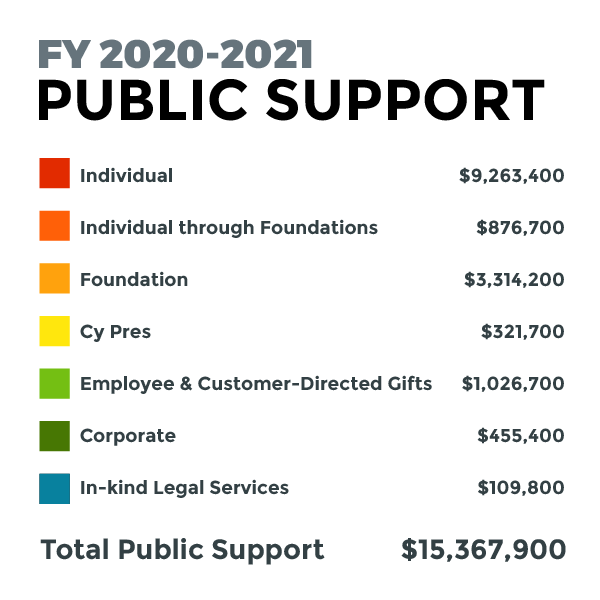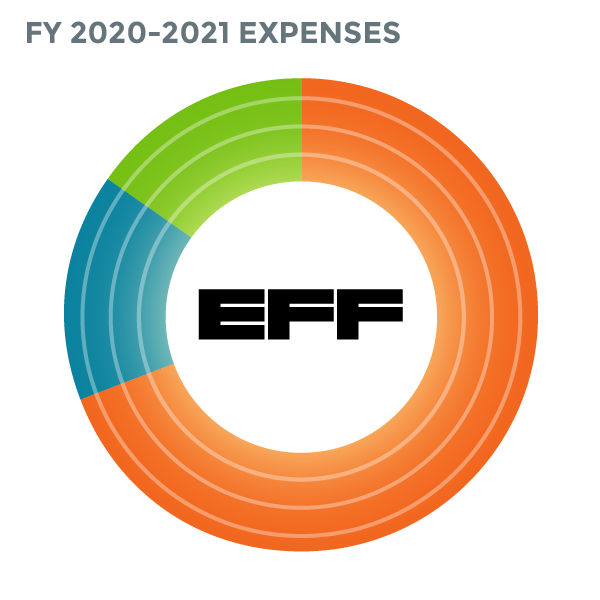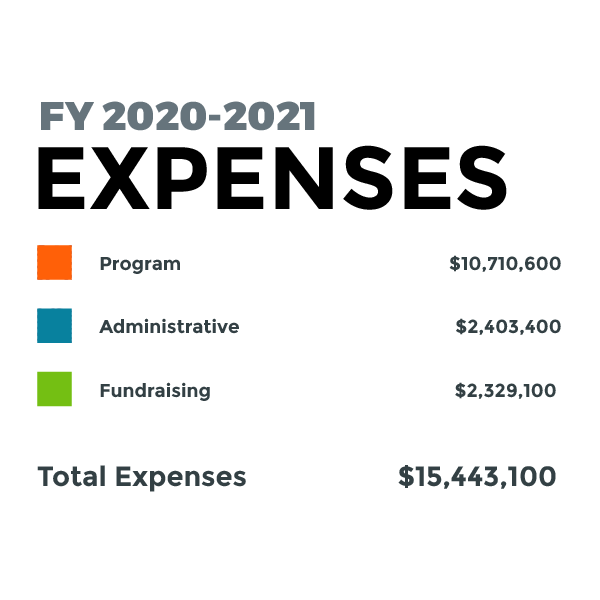About
The Electronic Frontier Foundation (EFF) is the leading nonprofit organization defending civil liberties in the digital world. EFF is an essential champion of user privacy, free expression, and innovation through impact litigation, policy analysis, grassroots activism, and technology development, and has been since our founding in 1990. Our staff of nearly 100—including lawyers, activists and technologists—works to ensure that our rights and freedoms are enhanced and protected as our reliance on technology grows worldwide.
Our members around the globe drive the movement for digital privacy, the free exchange of ideas, and an online world in which the public’s interests come first. Because of our supporters, our values live in the law, in code, and in the way we defeat threats and champion progress. We’re proud of and humbled by our 39,000 members’ passion for ensuring that technology supports freedom, justice, and innovation for all the people of the world. Nearly 20% of EFF members in 2021 lived outside of the US. Thank you to all of our individual and organizational members!
EFF is grateful for the generous support of these public foundations in 2021 (partial list): Filecoin Foundation for the Decentralized Web, Ford Foundation, John D. and Catherine T. MacArthur Foundation, Open Society Foundations, Alfred P. Sloan Foundation, Craig Newmark Philanthropies, Kaphan Foundation, California Community Foundation, Swedish Postcode Foundation, Someland Foundation, and Rose Foundation for Communities and the Environment.
Finally, EFF would like to thank and honor our co-workers and friends who have passed over the last year including Elliot Harmon, EFF activist for free speech and innovation, Peter Eckersley, former EFF Chief Computer Scientist who made the internet safer for everyone, Sherwin Siy, EFF friend, attorney and internet advocate, and Dan Kaminsky, EFF friend and computer security researcher. See EFF Annual Report 2021 PDF for more details.
Together, we make a better digital future possible.
EFF is not beholden to anyone but its members. Its staff is composed of legal, political and technical experts. EFF keeps me informed about issues important to me, and is, more than anything else, an organization that I trust."
- 2021 member survey responses




